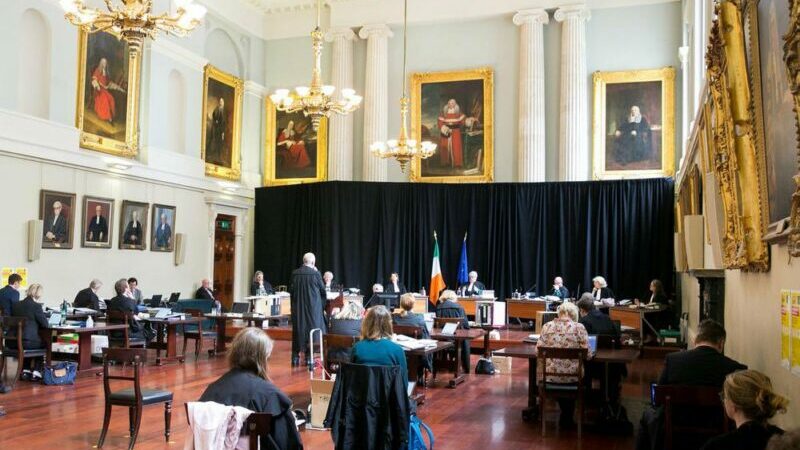The Irish government has been ordered to take more aggressive action on climate change, following a ruling by the country’s top judges.
In a judgment published today, the supreme court said Ireland’s existing emission cutting plans fell “well short” of what was required to meet its climate commitments and must be replaced with a more ambitious strategy.
Ireland is obliged to cut its emissions by 80% by 2050 compared to 1990 levels, under its Climate Action and Low Carbon Development Act 2015. In 2017 it published a National Mitigation Plan explaining how it intended to meet that goal.
But Friends of the Irish Environment (FIE), which brought the legal case dubbed Climate Case Ireland, argued that the plan was not “fit for purpose” because it was not designed to achieve substantial emissions reductions in either the short or medium term. Citing the Intergovernmental Panel on Climate Change, the NGO said developed countries like Ireland should be cutting emissions 25-40% from 1990 levels by 2020.
Today’s judgment overturns a decision by the high court last September, which had rejected the case.
Greenpeace takes Arctic oil lawsuit to Norway’s supreme court
The Irish government has not denied the importance of tackling climate change. But in court its lawyers had contended that the state is not obliged to respond to climate change in any particular way and said even a 25% reduction in emissions by 2020 would cause an “extreme alteration” to Irish society.
FIE appealed the high court decision before a socially distanced panel of seven supreme court judges in June.
Their final judgment states that the National Mitigation Plan should cover the full period remaining to 2050. “While the detail of what is intended to happen in later years may understandably be less complete, a compliant plan must be sufficiently specific as to policy over the whole period to 2050.”
While the high court had also raised concerns about how the case affected the separation of powers between the judiciary and the executive, the supreme court pointed to the fact that emission targets are set in legislation. “What might once have been policy has become law by virtue of the enactment of the 2015 Act,” its judgment said.
The decision did not tackle issues of constitutional and human rights, which FIE had also invoked, saying these should be reserved for future environmental cases.
Climate news in your inbox? Sign up here
Clodagh Daly, a spokesperson for Climate Case Ireland, described the judgment as “really significant”. “The unanimous ruling by seven supreme court judges has made it crystal clear that the government cannot set long-term commitments without showing how they will be achieved in the short term,” she said. “The government needs to step up. It has a legal obligation to do so.”
Tessa Khan, a lawyer with the Urgenda Foundation, described the judgment on Twitter as “absolutely historic”, noting that it is only the second time a country’s supreme court has held that a national climate policy is not ambitious enough. In December, Urgenda won a landmark victory against the Netherlands government.
Daly noted that the public conversation around climate change had shifted significantly since Climate Case Ireland began three years ago. The incoming coalition government has promised to set annual emission cutting goals and strengthen the 2050 target to net zero.
“There are some interesting new objectives that were agreed upon by the coalition; it’s good to see those conversations happening,” said Daly. “But ultimately we need to see reductions in emissions in the short term. With the new government the devil will be in the detail.
“What is significant is that Ireland contributes disproportionately to the climate crisis but we have the means to lead the now dangerously overdue transition to a low-carbon society.”
Eamon Ryan, the Irish government’s minister for climate action, communication networks and transport, welcomed the judgment and congratulated FIE for taking the “important” case. “We must use this judgement to raise ambition, to empower action and to ensure that our shared future delivers a better quality of life for all,” he said in a statement.
